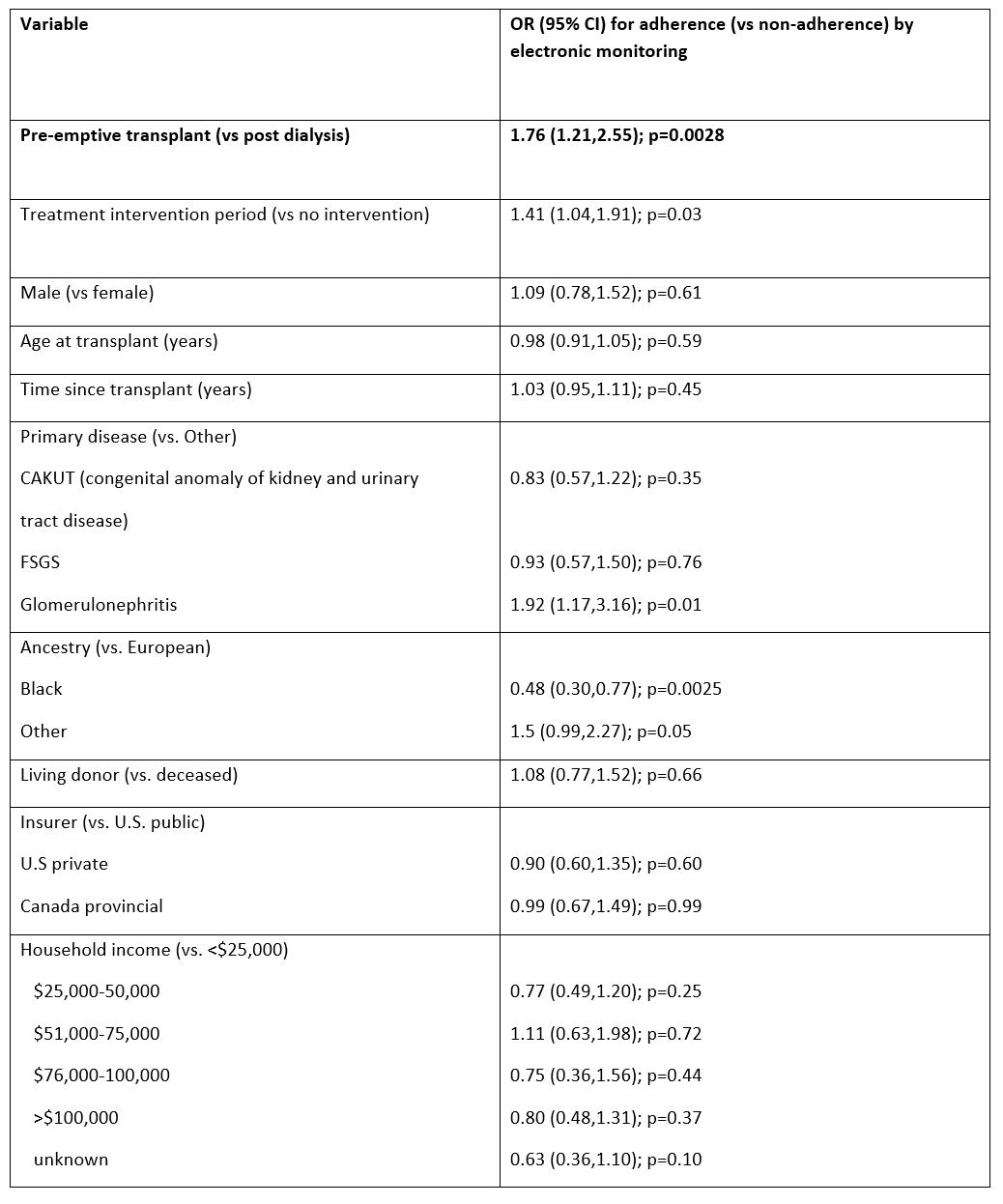Differences in medication adherence between preemptive and post-dialysis young kidney transplant recipients
Yulia Vaisbourd1, Mourad Dahhou2, Eugenie Samson2, Alexia Di Simone2, Bethany J. Foster1,2.
1Pediatrics, McGill University, MCH, Montreal, QC, Canada; 2Research institute, McGill University Health Centre, Montreal, QC, Canada
Teen Adherence in Kidney transplant Effectiveness of Intervention Trial (TAKE-IT).
Introduction: The mechanisms underlying the superior graft survival associated with pre-emptive kidney transplantation, compared with transplantation following a period of dialysis, are unknown. Selection for pre-emptive transplantation of a group biased to better treatment adherence is possible. We aimed to compare medication adherence between pre-emptively transplanted young kidney transplant recipients and those who received a transplant after an interval of dialysis.
Methods: This was a secondary analysis of the Teen Adherence in Kidney transplant Effectiveness of Intervention Trial (TAKE-IT), in which adherence was assessed with electronic monitors over a 15-month period among 11–24 year-old kidney transplant recipients. Adherence scores of 0%, 50%, or 100% were calculated for each day, depending on whether the patient took none, half, or all prescribed doses. We used ordinal logistic regression to estimate the association between pre-emptive transplantation and adherence, with generalized estimating equations to account for repeated measures within each participant. The model was adjusted for sex, age at transplant, time since transplant, primary kidney disease, race, donor source, medication insurer, household income, and adherence intervention (time-varying).
Results: There were 43 pre-emptive transplant recipients (median age 15.8 [IQR 13.7-17.6]; 60.5% male) and 103 who has been treated with dialysis (median age 15.7 [IQR 13.3-17.4]; 60.2% male). The mean adherence score was 85.1% (IQR 81.3-88.9) for those pre-emptively transplanted, and 80.0% (IQR 76.7-83.4) for those transplanted after dialysis. Table 1 shows the results adjusted logistic regression model. Preemptively transplanted recipients had significantly higher odds of adherence than those dialyzed before transplantation (OR 1.76 95%CI 1.21-2.55; p=0.003).
Conclusions: Pre-emptively transplanted patients showed significantly better adherence than those treated with dialysis before transplantation. This suggests that the superior outcomes observed among preemptive kidney transplant recipients likely reflect selection of patients more likely to adhere to therapy.


right-click to download
